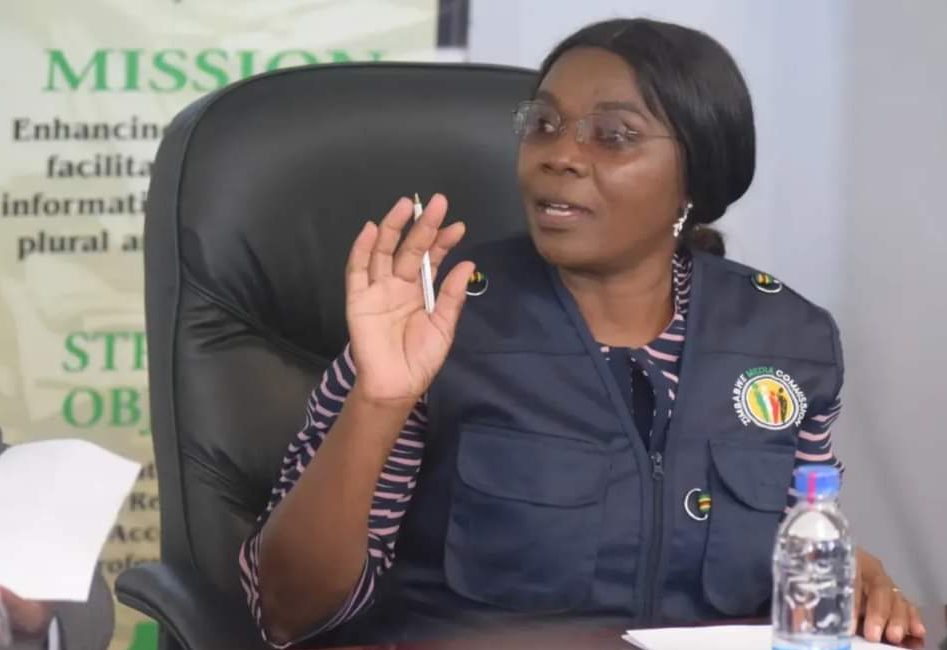Zimbabwe Media Commission (ZMC) Chairperson, Professor Ruby Magosvongwe, declared that media organizations refusing to endorse the contentious code of conduct crafted by the commission alongside a select group of journalists would be barred from reporting on the upcoming Gukurahundi outreach program—a significant blow to media freedom.
Magosvongwe made these remarks during a meeting between ZMC and the journalist committee it currently collaborates with in Harare on Monday. The gathering, named the “Gukurahundi media sensitisation breakfast meeting,” took place at the Rainbow Towers Hotel, following previous sessions held in Bulawayo.
Critics argue that the ZMC’s approach, in partnership with the journalist committee, lacks representativeness and fails to engage in authentic stakeholder consultations. Instead, it imposes restrictions on media coverage of the Gukurahundi investigation, reminiscent of the censorship during the 1980s massacres and ensuing genocide.
Also read:Meet the Stunning and Beautiful ‘Ruvheneko Parirenyatwa’
This coercive strategy by ZMC and its journalist allies risks legal repercussions for undermining constitutionally protected media liberties—specifically, freedom of the press and freedom of expression. Compelling journalists to adhere to a restrictive code effectively stifles their voices and constitutes media oppression.
The “Gukurahundi Code of Conduct Pledge” drafted by ZMC and its journalist cohort seeks to control the coverage process, restrict access to information, and dictate the language used by reporters—an egregious violation of media freedom. For instance, the code discourages journalists from using terms like “genocide” and “massacre” in their reporting, a blatant act of censorship.
Gukurahundi experts assert that the massacres indeed constitute genocide, a fact that journalists are ill-equipped to dispute. Attempts by figures such as National Council of Chiefs deputy president Chief Fortune Charumbira to exclude reporters from the hearings are deemed unconstitutional, infringing upon constitutionally guaranteed freedoms.
The composition of the “technical committee,” lacking broad stakeholder consultations and representation, further undermines the legitimacy of the process. Mainstream media bodies, including the Zimbabwe National Editors’ Forum (Zinef) and the Voluntary Media Council of Zimbabwe, have expressed reservations about the process’s consultative nature.
Zinef’s Deputy Chair, Victoria Ruzvidzo, supported by her colleagues, advocates for a more inclusive and consultative approach. Stakeholders like Njabulo Ncube and Loughty Dube aim to address concerns raised by mainstream media bodies through their involvement in the process.
The current approach, involving various stakeholders, governmental bodies, and constitutional organizations in endorsing the code, encroaches upon newsroom autonomy and exposes journalists to manipulation and censorship.
Also read: MPILO Central Hospital Appeals for Help in Identifying Unconscious Patient

For comments, Feedback and Opinions do get in touch with our editor on WhatsApp: +44 7949 297606.
